FAQS
Maximizing Outdoor Comfort: The Ultimate Guide to Choosing Commercial Patio Heaters
As outdoor dining experiences continue to grow in popularity, understanding how to enhance guest comfort is paramount for commercial establishments. According to industry data, the market for commercial patio heaters is projected to reach $232 million by 2027, reflecting a rising demand among restaurant and hospitality operators to extend outdoor service seasons. With the ability to increase seating capacity and attract customers year-round, investing in high-quality commercial patio heaters can significantly improve profit margins. However, choosing the right heater involves more than just aesthetics; factors such as heating efficiency, safety standards, and energy sources must all be considered. This guide aims to provide essential tips and insights into selecting the best commercial patio heaters, ensuring that your outdoor space remains inviting, comfortable, and profitable no matter the season.
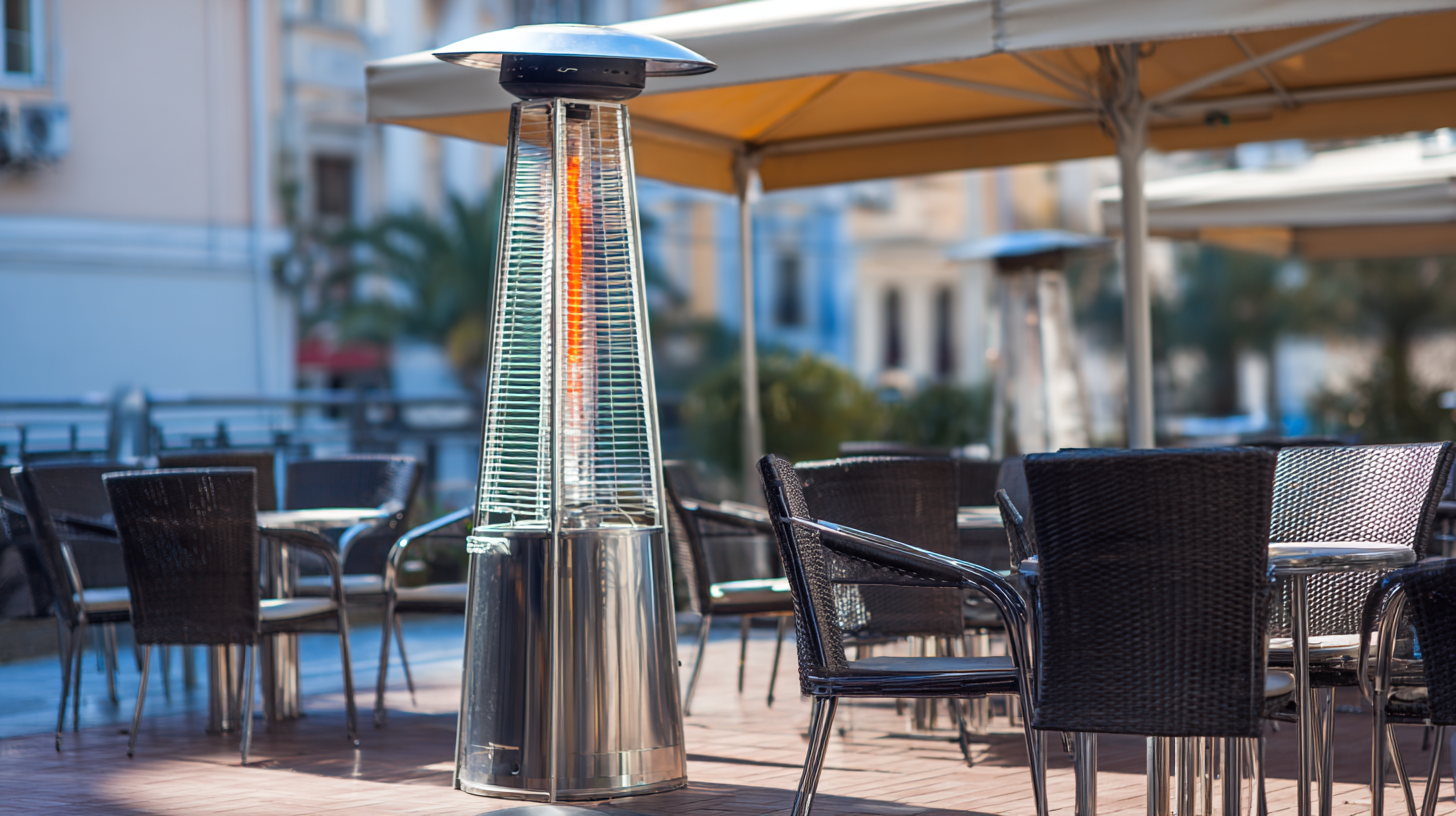
Top 5 Features to Look for in High-Quality Commercial Patio Heaters
When selecting high-quality commercial patio heaters, there are five essential features to consider to ensure maximum outdoor comfort. First, the heater's BTU output is crucial. According to a report by the Hearth, Patio & Barbecue Association, heaters with a higher BTU rating can warm larger areas, making them ideal for expansive dining spaces or events. Look for models that provide at least 40,000 BTUs for effective heating on chilly evenings.
Another important factor is fuel type. Gas heaters, including propane and natural gas, offer efficient and consistent heat delivery. A study by the American Council for an Energy-Efficient Economy emphasizes that propane heaters can heat areas faster and more effectively than electric ones, making them a preferred choice for busy commercial locations. Additionally, consider safety features such as an automatic shut-off and stable base design. Research published in the Journal of Safety Research notes that patio heaters equipped with these features significantly reduce the risk of accidents, providing peace of mind for both business owners and patrons. Robust construction and resistance to the elements are also vital in ensuring longevity and reliability in outdoor settings, particularly for establishments that operate year-round.
Maximizing Outdoor Comfort: The Ultimate Guide to Choosing Commercial Patio Heaters
| Feature | Description | Importance |
|---|---|---|
| Heat Output | Measured in BTUs, indicates the warmth provided by the heater. | High - Essential for effective heating in outdoor environments. |
| Fuel Type | Common types include propane, natural gas, and electric. | Medium - Affects convenience and operating costs. |
| Portability | Heaters can be stationary or on wheels for easy relocation. | Medium - Important for flexible outdoor arrangements. |
| Durability | Material quality impacts resistance to weather elements. | High - Ensures longevity and safety outdoors. |
| Design | Aesthetic appeal should suit the outdoor ambiance. | Low - Aesthetic consideration but can enhance patio experience. |
7 Types of Commercial Patio Heaters: Which One is Right for Your Space?
When it comes to enhancing the outdoor experience, selecting the right commercial patio heater is essential. There are several types available, each catering to specific needs and environments. The most common types include electric, propane, infrared, tabletop, freestanding, wall-mounted, and fire pits. According to a report by the Hearth, Patio & Barbecue Association, about 75% of restaurant owners leverage outdoor heating to extend their dining seasons, proving its value in the industry.
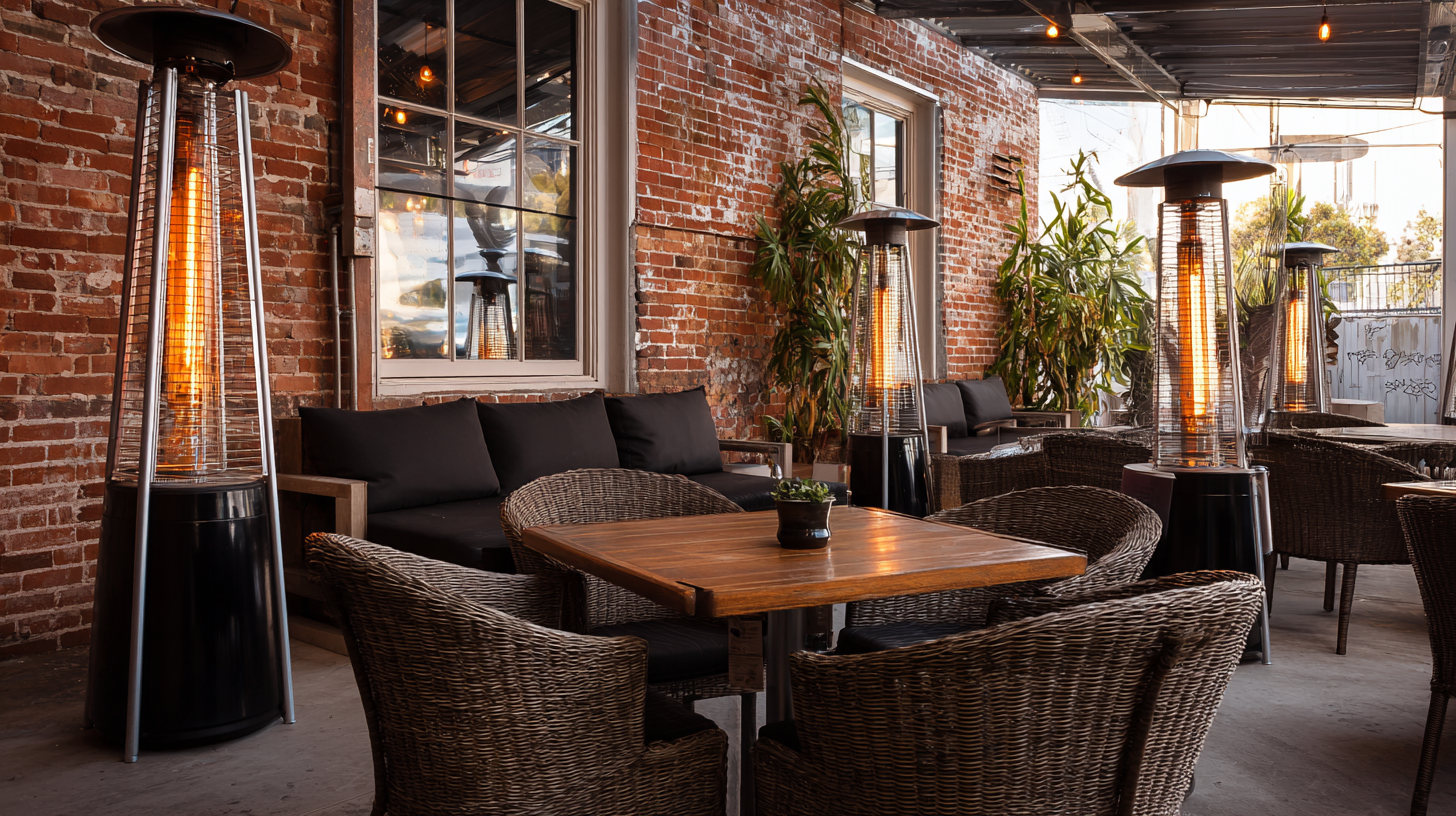
Choosing the right type depends on the size of your space and the heating requirements. For larger areas, freestanding or infrared heaters can deliver significant warmth efficiently. Conversely, tabletop units are perfect for smaller settings and add a touch of ambiance. It’s important to consider fuel types too; propane heaters can provide higher heat output, while electric heaters offer convenience and ease of use, especially in places with limited ventilation.
Tips: Evaluate your outdoor layout before making a purchase. Measure your space to determine heater placement and effectiveness in warming targeted areas. Regular maintenance checks, such as inspecting gas connections and electrical components, ensure safety and longevity of your heaters. Finally, consider local weather patterns—heat outputs vary dramatically in different climates, so each selection should complement your regional conditions for optimal outdoor comfort.
The 10 Best Commercial Patio Heaters for Year-Round Outdoor Enjoyment
As outdoor living spaces continue to evolve, the demand for effective heating solutions is booming. According to recent industry reports, the use of patio heaters can extend outdoor enjoyment well beyond summer, particularly as fall and winter seasons approach. In fact, investing in a quality patio heater can increase the usability of outdoor areas by up to 50%, allowing for cozy gatherings even in cooler weather.
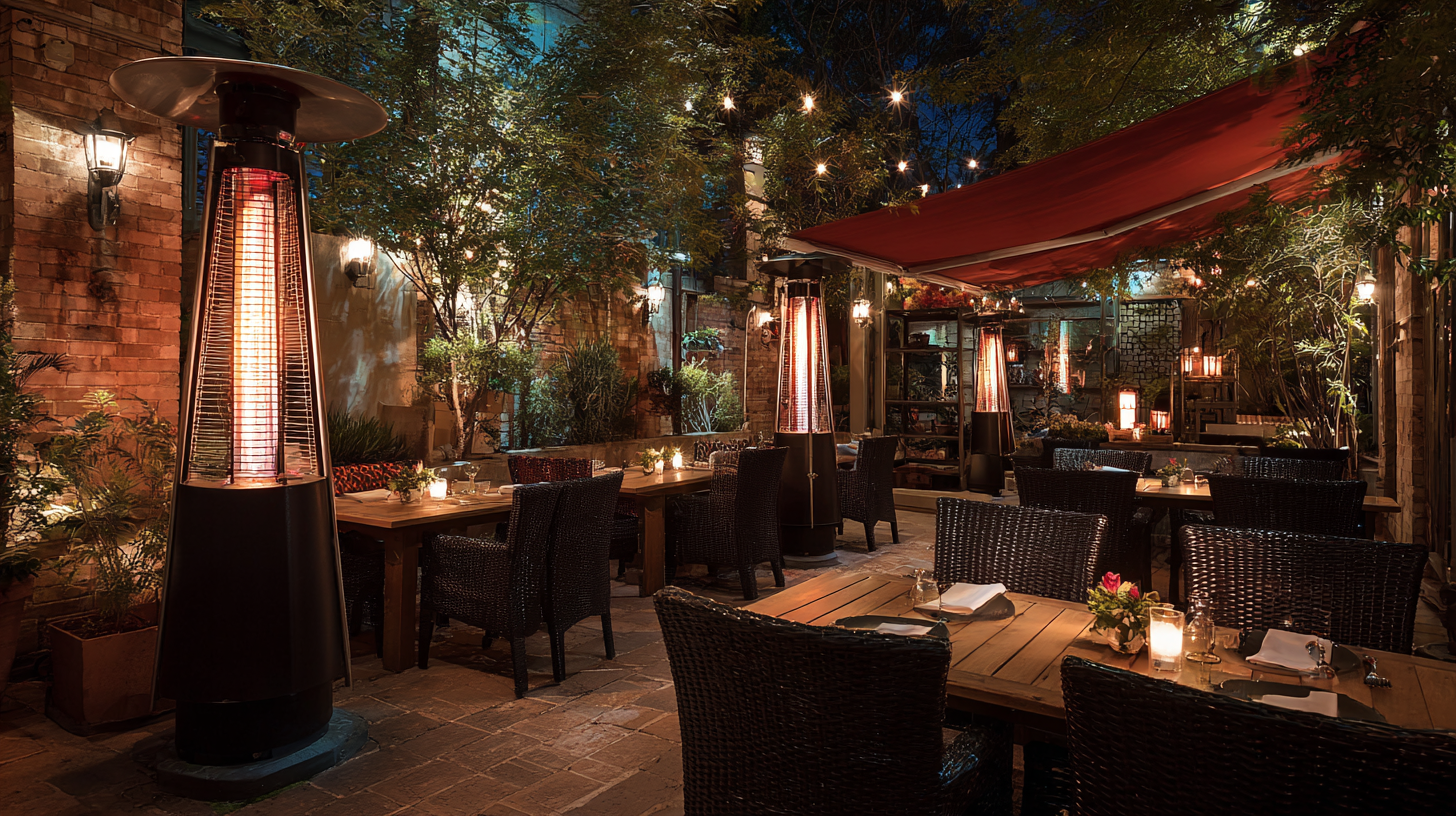
When selecting the ideal commercial patio heater, it's crucial to consider factors such as fuel type, heat output, and design. The latest tests have shown that propane heaters generally provide higher heat output than electric models, making them suitable for larger spaces, while electric options often excel in convenience and safety features. Additionally, energy efficiency ratings have improved significantly, with some modern units boasting over 90% efficiency, ensuring that warmth does not come at the cost of skyrocketing utility bills.
With the right patio heater, establishments can enhance their outdoor dining experiences, attracting customers year-round and maximizing their investment in outdoor amenities.
5 Important Factors Affecting the Performance of Patio Heaters
When selecting a commercial patio heater, several key factors play a critical role in determining its performance. One of the most significant variables is the type of fuel used. Patio heaters primarily operate on propane, natural gas, or electricity, and each fuel type has its own efficiency and heating capabilities. Propane models are portable and deliver high heat output, while natural gas heaters are typically installed permanently and offer a more consistent performance. Electric heaters, while usually less powerful, can be ideal for smaller areas or settings where installation flexibility is necessary.
Another important consideration is the design and construction of the heater itself. Materials like stainless steel or aluminum not only enhance durability but also affect heat distribution. The shape of the heater can influence how far the heat radiates; for instance, a wider base might provide better coverage, while a tall, slender design could focus heat in a more direct area. Additionally, the wattage or BTU output is crucial, as higher ratings indicate greater heating capability, allowing businesses to maximize comfort for patrons even on cooler evenings.
Choosing the Best Fuel Source: Propane vs. Natural Gas for Patio Heaters
When selecting commercial patio heaters, one of the most critical decisions revolves around the fuel source: propane or natural gas. Propane heaters are widely appreciated for their portability and ease of use. According to the U.S. Energy Information Administration, propane has a higher energy content of approximately 91,500 BTUs per gallon, making it an efficient choice for those seeking instant heat. This portable option allows businesses to easily relocate heaters as needed, creating a flexible outdoor environment.
On the other hand, natural gas heaters are recognized for their cost-effectiveness in the long run. A report from the American Gas Association highlights that natural gas can be anywhere from 30% to 50% cheaper than propane, depending on market conditions. Additionally, natural gas provides a steady supply of heat without the need for refueling, which is ideal for restaurants and hospitality venues looking to maintain a consistent outdoor atmosphere. While the initial setup for natural gas requires a fixed line installation, the benefits often outweigh the upfront costs, offering a sustainable outdoor heating solution for commercial applications.
Maximizing Outdoor Comfort: Patio Heater Fuel Source Comparison
Related Posts
-

Discover the Best Outdoor Heaters in the UK to Transform Your Winter Evenings
-
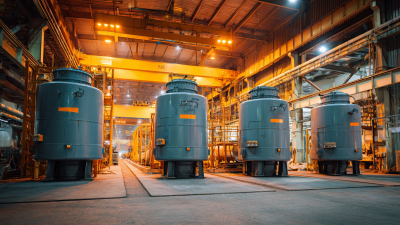
Exploring the Science Behind Industrial Heaters: How They Transform Energy into Heat
-
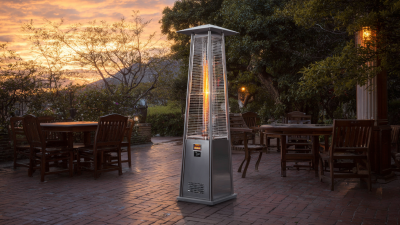
Exploring Innovations in Gas Patio Heater Products at the 2025 Canton Fair
-
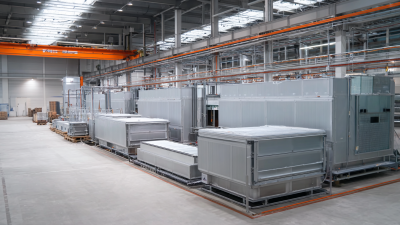
Optimal Warehouse Heating Solutions for Enhanced Energy Efficiency in Cold Storage Facilities
-

How Infrared Bar Heaters Work: The Science Behind Efficient Heating Solutions
-

How to Choose the Right Commercial Electric Heaters for Your Business Needs
 Skip to content
Skip to content
